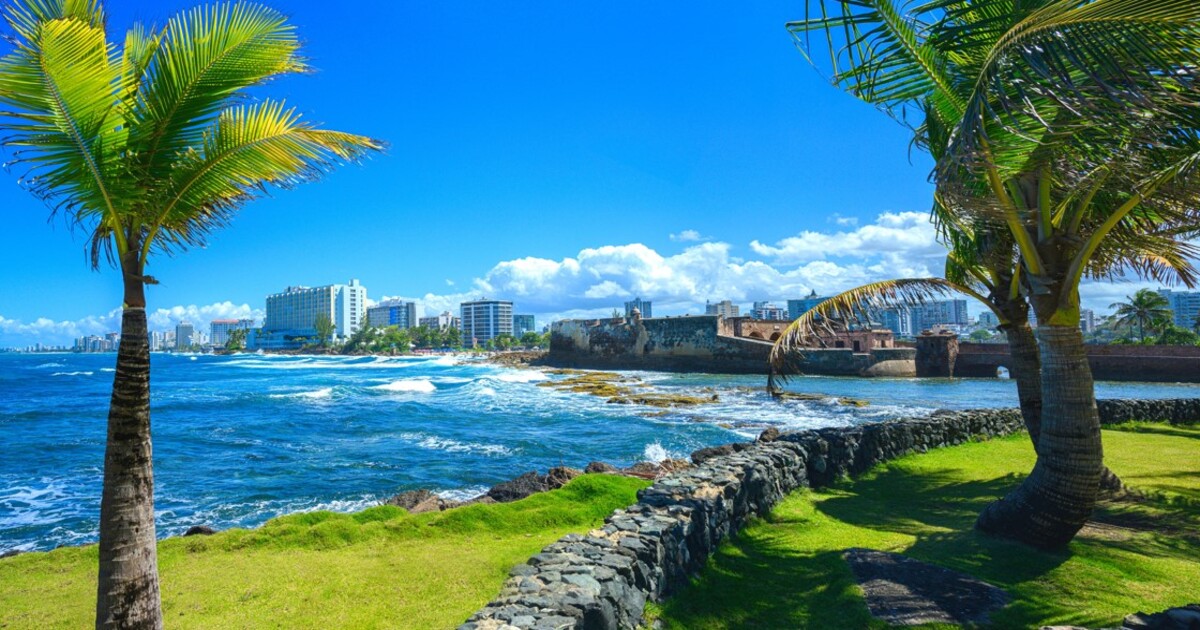Why I Choose to Live on a Floating Island of Garbage
If Puerto Rico is a floating island of garbage, at least it is healthy, smart, educated, democratic and culturally sophisticated garbage.
November 5, 2024

The recent comments from Trump’s campaign have caused ire and humiliation throughout Puerto Rico and beyond.
If you wonder how life is on a floating island of garbage, let me weigh in based on my 15 years on the faculty of our university.
Living the Puerto Rican dream
While my Puerto Rican dream came true, the island has done the same for many others. We have de facto free education for the poor, since the Pell Grants — for students with limited financial resources — exceed the cost of our tuition.
Despite a median income half that of Mississippi, the poorest U.S. state, Puerto Rico has effectively the same percentage of college-educated people as the U.S. mainland.
Moreover, in the face of natural and unnatural disasters, life expectancy in Puerto Rico is four years longer than the U.S. average — a gap that is growing.
Add to the mix that the Universidad de Puerto Rico is the only Spanish-language Land Grant University, and that we graduate more Latinx in STEM fields than any other institution, Puerto Rican higher education boasts an impressive record.
Puerto Rico loves democracy
In the current news context, what is perhaps most notable is that Puerto Rico has one of the highest voting rates in this hemisphere — surpassing the U.S. mainland by 50% in many election years.
Of course, we cannot vote in the presidential election, even with U.S. citizenship (Puerto Ricans can vote if living on the mainland — island residents cannot).
All in all, Puerto Rico may be economically deprived — largely due to external meddling — but the island thrives when you consider culture, education, health and the strength of our democracy.
If anything, this makes us healthy, smart, educated, democratic and culturally sophisticated garbage.
What can be learned from Puerto Rico
But if different languages and cultures are not viewed as isolated islands, but as stimuli for learning and improvement, we should ask how the Puerto Rican model of education and healthcare could be implemented in many areas of the mainland.
That does not mean that education should break free from English, but that Spanish should be added. If that idea were implemented, the various institutions — schools, universities, hospitals, courts and so on — could better meet the needs of the communities they serve.
Of course, most U.S. education and governmental organizations do not share this vision. They continue to discriminate based on language and maintain Donald Trump’s dream of English-only administration at all levels.
This has significant practical consequences. For example, any proposal from Puerto Rico — whether to the U.S. Department of Education, the National Science Foundation, National Institute of Health and even the National Endowment for the Humanities — must be submitted in English.
Such language-based discrimination is short-sighted. Amidst significant declines among many population groups in the United States, Spanish-speaking communities are growing.
The benefits and the irony
This demographic growth will provide what even Donald Trump desires — economic expansion. But it also inevitably leads to what he fears: The number of Latinx students is expected to grow by over 20% by the end of the decade.
They may speak a language that Trump will not understand, but they will certainly cast votes for candidates who respect them.
It is self-explanatory that the presence of people who use Spanish in universities and other institutions is a positive, not a negative factor — whether for the right, center and left in the United States, but also for the economy, culture and society.
Conclusion
While some Republicans in the United States support the Americanization of Puerto Rico, especially in language, it may be well advised in some crucial regards to consider the reverse proposition — the “Puertoricanization” of the United States.
Puerto Rico can — and should — indeed be a model for mainland democracy, education and healthcare.
Takeaways
If Puerto Rico is a floating island of garbage, at least it is healthy, smart, educated, democratic and culturally sophisticated garbage.
Despite a median income half that of Mississippi, the poorest U.S. state, Puerto Rico has effectively the same percentage of college-educated people as the U.S. mainland.
Puerto Rico has one of the highest voting rates in this hemisphere — surpassing the U.S. mainland by 50% in many election years.
Puerto Rico may be economically deprived — largely due to external meddling — but the island thrives when you consider culture, education, health and the strength of its democracy.
Amidst significant declines among many population groups in the U.S., Spanish-speaking communities are growing. This demographic growth will provide what even Donald Trump desires — economic expansion.
While some Republicans in the U.S. support the "Americanization" of Puerto Rico, especially in language, it may be well advised in some crucial regards to consider the reverse proposition— the “Puertoricanization” of the U.S.

